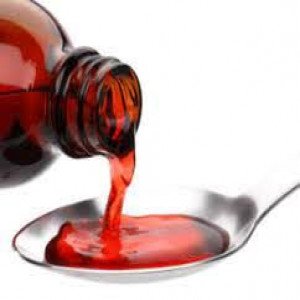 Welcome
Welcome
“May all be happy, may all be healed, may all be at peace and may no one ever suffer."
United Pharmaceuticals Ltd.

Lorastine 5mg / 5ml

Generic for Diseases
- Influenza (flu)
- Common cold
- Fever
- Dengue fever
- Q fever
- Hives (Cold urticaria)
- Laryngitis
- Pink eye (conjunctivitis)
- Allergies
- Allergic conditions
- Allergic rhinitis
- Chickenpox
- Chronic idiopathic urticaria (hives)
- Cough & runny nose
- Hives
- Hypersensitivity reactions
- Itching
- Lacrimation
- Pain and itching caused by sunburn
- Perennial or seasonal allergic rhinitis
- Pruritus
- Rhinitis
- Rhinorrhoea
- Runny nose
- Solar urticaria
- Urticaria
This tablet is a preparation of Loratadine. Loratadine is a non-sedative histamine Hr receptor antagonist with antiallergic properties. Loratadine is a long-acting tricyclic antihistamine with selective peripheral Hi-receptor antagonistic activity and no central sedative or anticholinergic effect. It is rapidly effective and long-lasting, allowing once-a-day administration.
Loratadine tablet provides fast, effective relief from the symptoms of seasonal allergic rhinitis, perennial allergic rhinitis and skin allergies including chronic urticaria. It is also effective in alleviating symptoms of allergic rhinitis such as sneezing, nasal discharge, itching, ocular itching and burning. Nasal and ocular sign and symptoms are relieved rapidly after oral administration. Loratadine tablet is also indicated in idiopathic urticaria. In children over 2 years Loratadine tablet is indicated for the symptomatic relief of seasonal allergic rhinitis and allergic skin conditions such as urticaria, nettlerash.
Adults and children over 12 years of age: One Loratadine tablet once daily. It is usually administered in the morning or when symptoms require treatment.
Children 2-12 years: Body weight over 30 kg: one Loratadine tablet once daily, below 30 kg: half Loratadine tablet once daily.
Below 2 years of age: Loratadine tablet is not recommended for use below 2 years of age since safety and efficacy has not been established.
Loratadine is contraindicated in patients who have shown hypersensitivity or idiosyncrasy to their components.
During controlled clinical studies the incidence of adverse events, including sedation and anticholinergic effects observed with 10 mg Loratadine was comparable to that observed with placebo. Studies on the effect of Loratadine on actual driving performance, and on tests of cognitive and psychomotor functioning have shown it to be comparable to placebo.
Overdose Effects
In adults somnolence, tachycardia and headache have been reported with overdose greater than 10 mg. Extrapyramidal signs and palpitations have been reported in children with overdoses of greater than 10 mg. In the event of overdosage, general symptomatic and supportive measures should be instituted promptly and maintained for as long as necessary. It would seem reasonable to treat patients presenting early after large overdoses with oral activated charcoal. The conscious patients may be induced to vomit or gastric lavage may be performed.
Caution should be taken in patients with liver impairment or renal insufficiency (eGFR <30 ml/min).
Pregnancy & Lactation
There is no experience of the use of Loratadine in human pregnancy. Therefore its use during pregnancy is not advisable. Loratadine is excreted in breast milk in a very small amount. So nursing mothers are advised not to take the drug.
Lorastine 5mg / 5ml and more Available Brands
Calamilon 15% + 5% +...
Lerof 500mg
Alaxen 0.5mg
Stogut 20mg
Erode 125mg / 5m...
Doperon 5mg / 5ml
Lorastine 5mg / 5ml
Adifex 120mg
...
To be happy, beautiful, healthy, wealthy, hale and long-lived stay with DM3S.